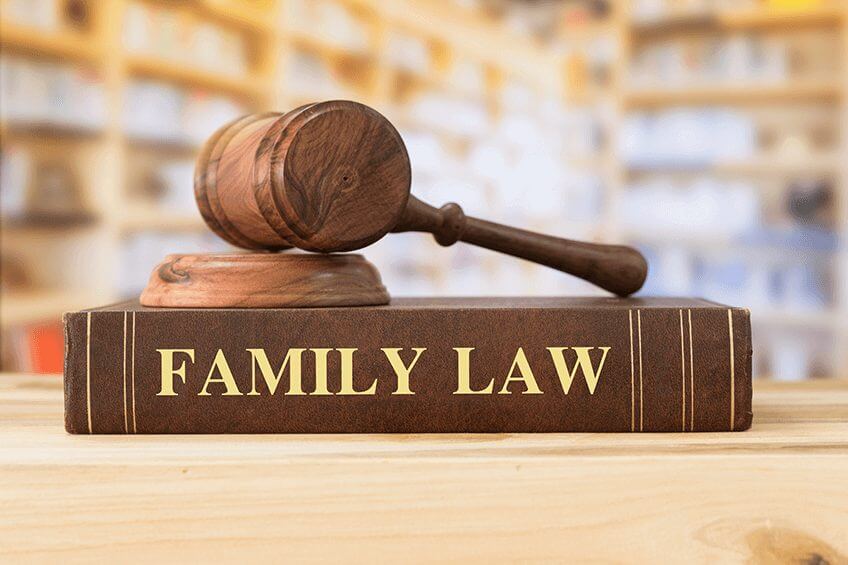Family Court Lawyer and How to Select One
When facing legal matters that involve your family, such as divorce, child custody disputes, or spousal support issues, the role of a family court lawyer becomes paramount. These legal professionals specialize in navigating the complexities of family law and can be your strongest advocate during challenging times. In this comprehensive guide, we will explore the essential aspects of selecting the right family court lawyer to ensure your interests are protected.
Why Do You Need a Family Court Lawyer?
Understanding the Complexities of Family Law
Family law encompasses a wide range of issues, from divorce and child custody to adoption and domestic violence cases. Each of these areas has its unique legal intricacies and procedures, making it nearly impossible for individuals without legal expertise to navigate successfully.
Dealing with the Emotional Aspects
Family court cases often come with heightened emotions and stress. A family court lawyer not only provides legal counsel but also offers valuable emotional support during these trying times. Their experience in handling delicate situations can help ease the emotional burden.
Qualities to Look for in a Family Court Lawyer
Experience and Specialization in Family Law
When selecting a family court lawyer, consider their experience and specialization in family law cases. An attorney well-versed in the nuances of family law is better equipped to handle your specific situation effectively.
Communication Skills and Empathy
Effective communication is key in family court cases. A lawyer who listens to your concerns and communicates clearly can make the legal process less daunting. Empathy and understanding go a long way in building trust and rapport.
Reputation and Client Testimonials
Research the lawyer’s reputation in the legal community and read client testimonials. Positive feedback and a strong track record of success can be indicative of a lawyer’s competence.
Researching Potential Lawyers
Online Resources and Legal Directories
Start your search by exploring online resources and legal directories. These platforms often provide information about lawyers’ practice areas, contact details, and client reviews.
Recommendations from Friends and Family
Seek recommendations from friends or family members who have been through similar legal situations. Personal referrals can provide valuable insights into a lawyer’s performance.
Initial Consultations
Arrange initial consultations with potential lawyers. This is an opportunity to discuss your case, assess their approach, and gauge your comfort level with them.
Questions to Ask During the Initial Consultation
Understanding Their Approach
During the consultation, inquire about their approach to handling your case. Ask about potential strategies and how they plan to address your specific issues.
Clarifying Fees and Billing Structures
Transparent discussions about fees and billing are essential. Understand their retainer fees, hourly rates, and any additional costs that may arise.
Assessing Your Comfort Level
Importance of a Strong Attorney-Client Relationship
An essential factor in selecting a family court lawyer is your comfort level with them. You must trust and feel comfortable discussing personal matters openly.
Trust and Open Communication
A lawyer should create an environment where you feel confident sharing your concerns and objectives. Open communication is crucial for a successful attorney-client relationship.
Legal Fees and Budgeting
Discussing Retainer Fees and Hourly Rates
Clearly define the financial aspects of your engagement. Understand how retainer fees work and inquire about hourly rates for legal services.
Exploring Payment Plans and Cost Estimates
Explore whether the lawyer offers payment plans or can provide estimates of the total cost of your case. This will help you budget effectively.
Get a free lawyer for family court
Checking for Disciplinary Actions
Researching Any Past Ethical or Legal Issues
Thoroughly research the lawyer’s background for any past disciplinary actions or ethical issues. A clean record is a positive sign of professionalism.
Reviewing Legal Contracts
Understanding the Terms of the Attorney-Client Agreement
Before hiring a family court lawyer, carefully review the attorney-client agreement. Ensure you understand the terms, responsibilities, and expectations on both sides.
Case Evaluation and Strategy
Collaborating with Your Lawyer
Work closely with your lawyer to outline your case strategy. Discuss your goals and objectives, and ensure they align with the legal strategy.
Setting Realistic Expectations
Your lawyer should help you set realistic expectations about the outcome of your case. Understanding the possibilities is essential to avoid disappointment.
Communication Throughout the Case
Regular Updates and Accessibility
A good family court lawyer should provide regular updates on your case’s progress. They should also be accessible for any questions or concerns you may have.
Negotiation vs. Litigation
Exploring Settlement Options
In some cases, negotiation and settlement can lead to favorable outcomes without going to court. Your lawyer should be skilled in negotiation techniques.
Preparing for Court if Necessary
If court proceedings are unavoidable, your lawyer should be prepared to represent your interests effectively in front of a judge.
Mediation and Alternative Dispute Resolution
Benefits of Resolving Issues Outside of Court
Explore the benefits of mediation and alternative dispute resolution methods. These approaches can save time and reduce the emotional toll of court battles.
Trial Preparation
Gathering Evidence and Witnesses
For cases that go to trial, your lawyer will play a crucial role in gathering evidence and preparing witnesses.
Legal Representation in Court
Your lawyer’s expertise will shine during court appearances, where they will present your case professionally and persuasively.
The Court Process
What to Expect During Court Appearances
Understanding what to expect during court appearances can help alleviate anxiety. Your lawyer will guide you through the process.
Legal Procedures and Timelines
Familiarize yourself with the legal procedures and timelines involved in family court cases. Being well-informed empowers you to make informed decisions.
Post-Divorce or Settlement
Navigating Post-Case Matters
After a divorce or settlement, there may be ongoing matters such as child support modifications. Your lawyer can assist with these post-case issues.
Modification of Court Orders if Needed
If circumstances change, your lawyer can help you seek modifications to court orders to ensure they remain fair and applicable.
Emotional Support
Coping with the Emotional Toll
Family court cases can be emotionally challenging. Seek therapy or counseling to help cope with the stress and emotional toll.
Importance of a Support System
Lean on your support system of friends and family for emotional assistance during this challenging time.
Choosing the Right Family Court Lawyer: A Recap
In summary, selecting the right family court lawyer is a critical decision that can significantly impact the outcome of your case. Consider their experience, communication skills, and reputation, as well as your comfort level with them. Be clear about legal fees and review the attorney-client agreement thoroughly. Collaborate closely with your lawyer to develop a strategic approach that aligns with your goals.
Conclusion
Choosing a family court lawyer is not a decision to be taken lightly. The right lawyer can guide you through the legal complexities and provide the emotional support you need during trying times. By following the steps outlined in this guide, you can select a family court lawyer who will advocate for your best interests and help you achieve a favorable resolution to your family law case.
Frequently Asked Questions (FAQs)
Can I represent myself in family court?
- While it’s legally possible to represent yourself, family court cases are often complex, and having a knowledgeable lawyer is highly recommended to protect your interests effectively.
How long does it typically take to resolve a family court case?
- The duration varies based on the complexity of the case, court backlog, and negotiation efforts. It can range from a few months to several years.
Are all family court lawyers the same?
- No, family court lawyers differ in terms of experience, specialization, and approach. It’s crucial to find one who aligns with your specific needs.
What if I can’t afford a family court lawyer?
- Explore legal aid services, pro bono representation, or payment plans offered by lawyers. There are options to make legal assistance more affordable.
Can I change my lawyer during an ongoing family court case?
- Yes, you have the right to change lawyers if you’re not satisfied with your current representation. However, it’s essential to consider the timing and potential impact on your case.








